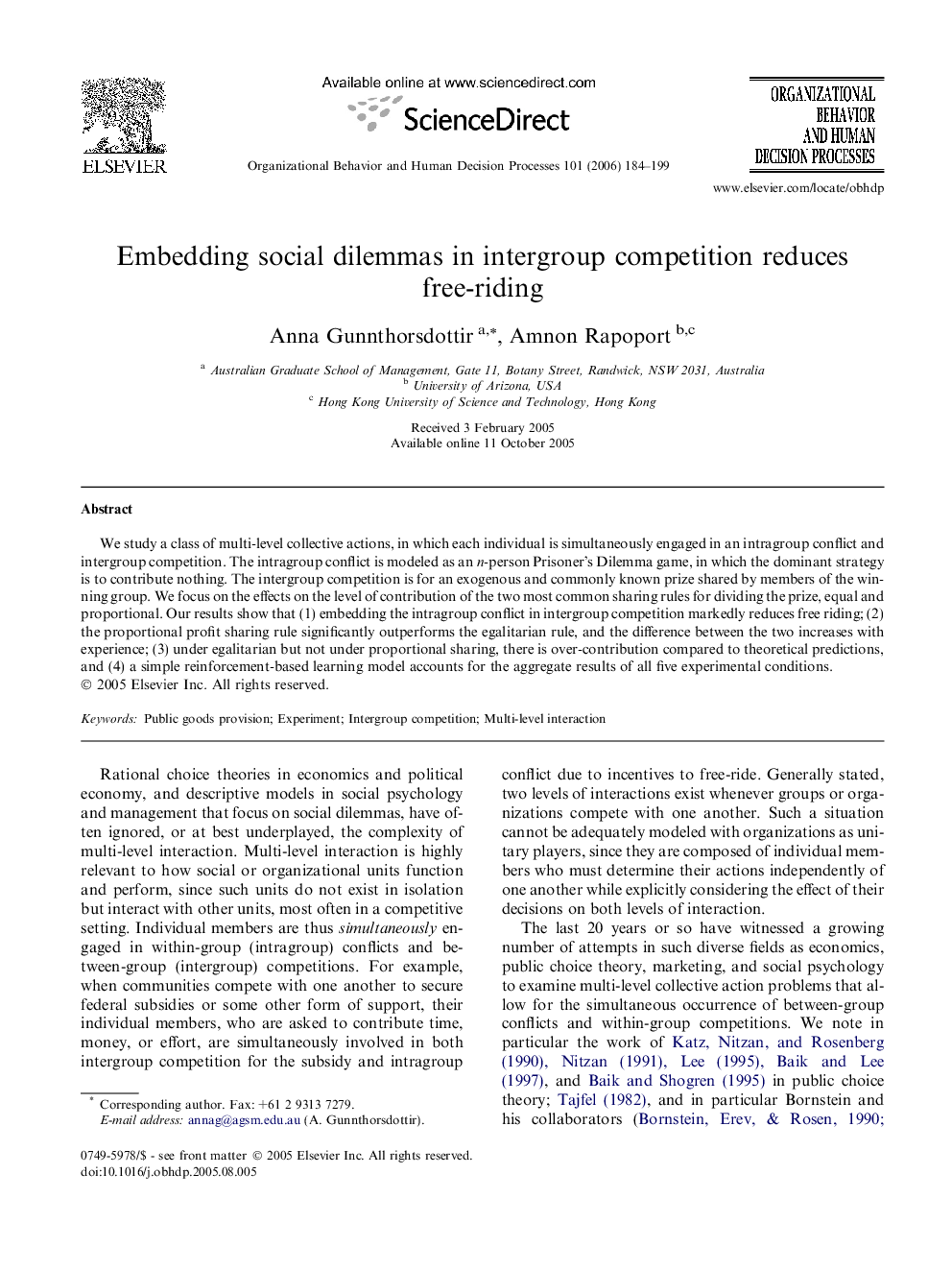| Article ID | Journal | Published Year | Pages | File Type |
|---|---|---|---|---|
| 889051 | Organizational Behavior and Human Decision Processes | 2006 | 16 Pages |
We study a class of multi-level collective actions, in which each individual is simultaneously engaged in an intragroup conflict and intergroup competition. The intragroup conflict is modeled as an n-person Prisoner’s Dilemma game, in which the dominant strategy is to contribute nothing. The intergroup competition is for an exogenous and commonly known prize shared by members of the winning group. We focus on the effects on the level of contribution of the two most common sharing rules for dividing the prize, equal and proportional. Our results show that (1) embedding the intragroup conflict in intergroup competition markedly reduces free riding; (2) the proportional profit sharing rule significantly outperforms the egalitarian rule, and the difference between the two increases with experience; (3) under egalitarian but not under proportional sharing, there is over-contribution compared to theoretical predictions, and (4) a simple reinforcement-based learning model accounts for the aggregate results of all five experimental conditions.
